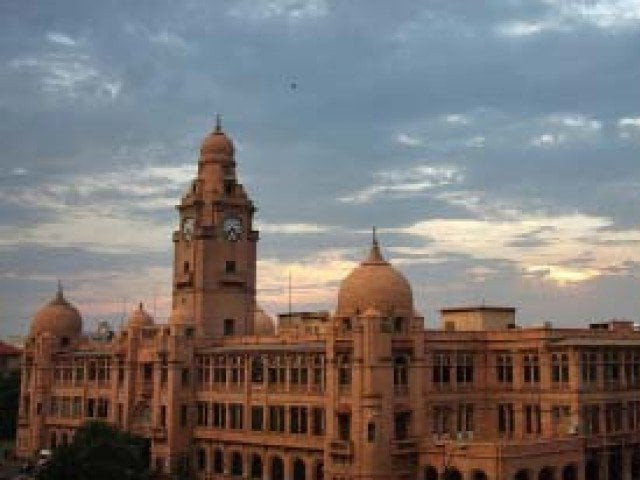Devolution in motion: Balance of power tilts from KMC to DMCs
District municipal corporations to handle property, motor vehicle taxes now

PHOTO: FILE
In efforts to devolve powers to the grassroots, the Sindh government transferred the functions of basic health, education and local taxes from the Karachi Metropolitan Corporation (KMC) to the six district municipal corporations (DMCs) in the city.
According to notification issued on Thursday by the local government department, this decision was made in compliance with Schedule-V of the Local Government Act, 2013. The notification makes the DMCs mayors the controlling authority over health, education and local taxes in their respective districts.
Trimming powers of Karachi mayor
The Muttahida Qaumi Movement (MQM), a major opposition party in Sindh that is going to have its mayor in KMC, has termed the decision yet another attempt to curtail the powers of the upcoming Karachi mayor. MQM's Khawaja Izharul Hassan, who is also the opposition leader in the Sindh Assembly, said that the Pakistan Peoples Party-led government has already curtailed the powers of mayors and that they will go to court to challenge this decision.
‘Democracy being strengthened’
Quoting Article 140-A of the Constitution that gives political, administrative and financial authority to local government representatives, Hassan said that the Sindh government has retained all powers with itself, making KMC nearly impotent. "It is the KMC's responsibility to run the sanitation and solid waste management board but they [Sindh government] have put them under the control of the chief minister, which is illegal," he said.
However, local government minister Jam Khan Shoro insisted that they have given full authority to elected representative by devolving powers to the grassroots. The recent notification is clear evidence of it, he told The Express Tribune. His department's spokesperson also said the government neither had any ill intentions behind the notification nor has it made the mayor 'toothless' as feared by MQM leaders.
Hastily drafted law
Apart from the concerns raised by the opposition, the hastily drafted LG Act 2013 also leaves a lot of room for confusion. The law allows KMC to collect the fire tax, drainage tax, market fee, tolls on roads and bridges owned and maintained by KMC, entertainment tax, drainage tax, charged parking on roads maintained by KMC, and the fee on licences. However, the property tax, fee on births, marriages, adoptions and feasts, advertising including hoardings and billboards, tax on vehicles (other than motor vehicles and boats), streetlight rates, rate for the execution of any public utility work, school fee, parking fee on roads, and fee for markets will be collected by the DMCs.
Devolution of power: 600,000 officers to oversee LG elections
The confusion arises in the collection of some taxes as they are mentioned under the functions of both the KMC and the DMCs. For example, local tax on the transfer of immovable property, entertainment tax on cinemas, dramatic and theatre shows, fee to slaughter animals and conservancy tax are listed under both domains.
KMC local tax officials and members of the Sindh government were unable to provide a satisfactory response on this oversight and requested for more time before commenting.
Transfer of schools
The notification also leads to the transfer of 600 primary schools, which were previously under the management of the KMC, to their respective DMCs, explained KMC education director Bilal Manzar.
Referring to the Local Government Act, 1979, Manzar said, "Earlier, there were district-level controlling authorities for schools in all districts of Karachi but the law was amended during the tenure of [former city mayor] Mustafa Kamal when Karachi became one district and all schools were placed under the [now defunct] City District Government Karachi led by the city nazim." He explained that the PPP has now undone this amendment.
Deadline: DMCs given one month to start cleanliness drive
Transfer of health facilities
The functions of many health facilities have been similarly transferred from KMC to the DMCs. There are more than 172 health facilities including hospitals, maternity homes and dispensaries in Karachi but KMC will retain the control of only 18 major ones, said an official privy to the developments. The remaining will be managed by the DMCs.
KMC health director Dr Salma Kausar pointed out that Abbasi Shaheed Hospital, Sarfaraz Rafiqui Shaheed Hospital, Spencer Eye Hospital, Sobhraj Maternity Home and other major facilities will stay under KMC's control.
Published in The Express Tribune, December 18th, 2015.



















COMMENTS
Comments are moderated and generally will be posted if they are on-topic and not abusive.
For more information, please see our Comments FAQ